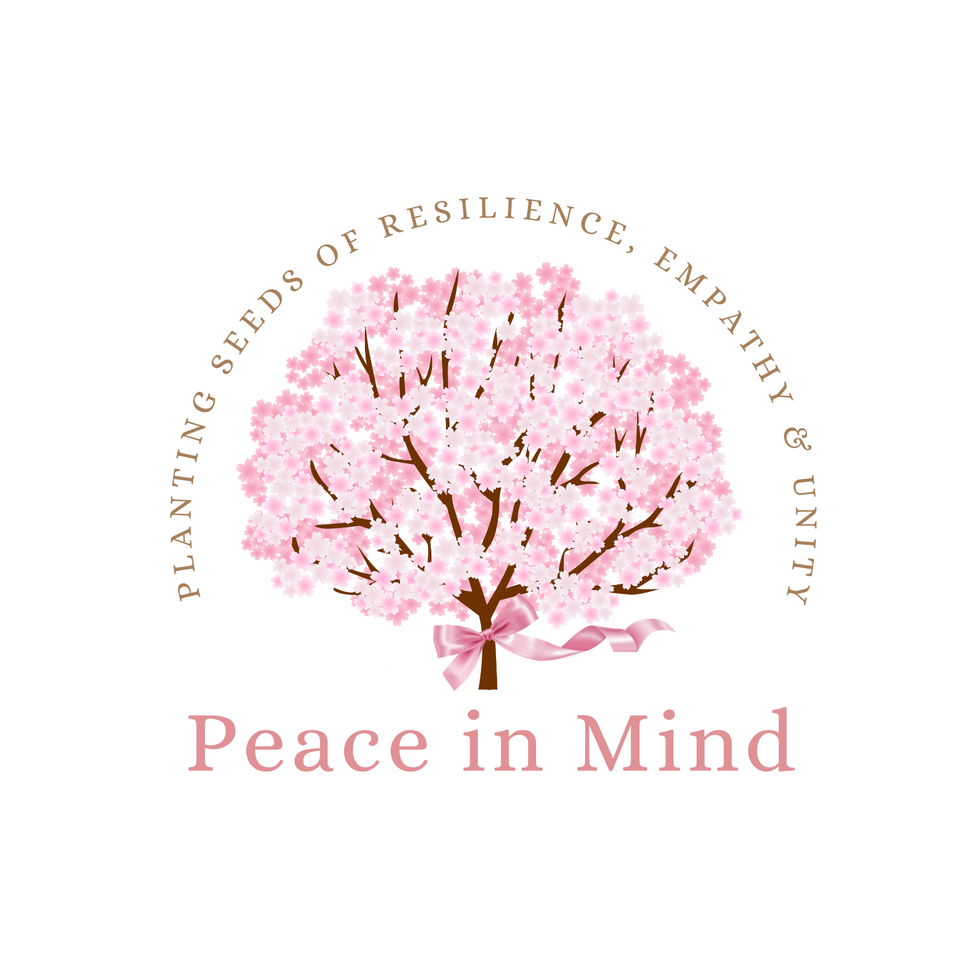
Persistent gap in mental health aid leaves Latinos unprepared amid crisis
More than a year after a gunman opened fire in an Uvalde, Texas classroom, Monica Muñoz Martinez is still working to connect survivors with mental health resources and raise awareness about the issue.
“There’s still unmet needs and people who are eligible for services still struggle to access those,” said Muñoz Martinez, a university professor who started working with victims’ families and some first responders soon after the May 24, 2022 shooting. “There are resources available but still not everyone knows how to access them, if they are eligible or what they should ask for.”
The lingering struggle in the South Texas town, which is about 82% Latino, underscores the problems with access and even education about mental health in the country. If people continue to struggle to get mental health aid in Uvalde — despite the long spotlight on the trauma of a massacre that claimed the lives of 19 children and two teachers, and wounded 17 others — then what about others whose troubles are not national calamities?
President Joe Biden emphasized the national struggle this week by announcing new proposed regulations aimed at pushing insurance companies to step up their coverage of mental health treatments.
In 2021, 2 in 5 American adults reported experiencing symptoms of anxiety and depression, and 44% of high school students reported struggling with persistent feelings of sadness or hopelessness, exacerbated by the Covid-19 pandemic, social media and gun violence, according to the White House.
“I don’t know what the difference between breaking your arm and having a mental breakdown is — it’s health,” Biden said Tuesday.
The disconnect from services is wider for Latino, Black and Asian adults.
Just 36.1% of Latino adults who had a mental illness in 2021 received services, compared to 52.4% of whites, according to the Substance Abuse and Mental Health Services Administration’s National Survey on Drug Use and Health. About 52% of adults with mental illness who identified as multiracial got services, while 39.4% of Black and 25.4% of Asian adults with mental illness received health services that year.
Story continues
There are a range of reasons why many Latino families are not connecting with mental health services, including higher poverty rates, language barriers, cultural stigmas about seeking professional therapy or counseling, the cost of therapy, a shortage of culturally relevant mental health services and a lack of mental health professionals, especially those with multicultural backgrounds.
“We are seeing in real time how unprepared communities like Uvalde are and how the need to find solutions for the community can help communities in the future,” said Muñoz Martinez, a history professor at University of Texas at Austin who is working on a campaign to better inform families in Uvalde about mental health.
Even when there’s a commitment to providing services as she’s seen in some places in Texas, Muñoz Martinez said, public education is missing along with ease of access to resources.
Especially in rural communities or in places where residents have strong relationships with their faith, there’s a feeling among some people that they have to decide between having faith and seeking mental health support, “and that is a misconception that we are just learning more about,” she said.
Diana Anzualda. (Courtesy Diana Anzualda)
For Diana Anzaldua, her desire to provide mental health services to Latinos led to the creation of the Austin nonprofit Contigo Wellness. For Dr. Nancy Ramirez, a clinical psychologist at Texas Tech University Health Sciences Center in El Paso, it has meant connecting students from El Paso to Del Rio to virtual services through the Texas Child Health Access Through Telemedicine program, for which the health science center is the hub.
And a trio of Latinos in Congress — Sens. Bob Menendez, D-N.J., Sen. Alex Padilla, D-Calif. and Rep. Grace Napolitano, D-Calif. — is hoping to achieve that goal through a piece of legislation, the Mental Health for Latinos Act, they’ve introduced to address cultural stigma around mental health and to fix health care disparities.
Struggling to put a spotlight
“We’ve been for 20 years trying to get attention focused on Latino mental health,” Napolitano, who’s ending a quarter-century career in the U.S. House this year, said in a phone interview with NBC News.
Napolitano said the legislation is intended to develop and implement outreach and education strategies to promote mental health services and reduce the stigma of using them, as well as identify gaps and involve consumers and community members in addressing them.
The point is to “reinforce the message that there is no shame in asking for help,” she said.
Napolitano helped start a school-based mental health services program in her congressional district in 2001, at a time when Latinas were experiencing the highest adolescent suicide rates. The program, which started in one high school and three middle schools, has since expanded to dozens of schools.
The legislation introduced by the three Latino lawmakers is unlikely to advance as a stand-alone bill, Napolitano said. They hope it can be folded into the Pursuing Equity in Mental Health Act, a bill introduced by Rep. Bonnie Watson Coleman, D-N.J., and Napolitano in the House, with a companion bill introduced in the Senate by Menendez. The House approved the bill in 2021, but the Senate did not take it up for a vote.
Ramirez, the psychologist from El Paso, said there has been a cultural shift in the country toward better mental health access. “However, the Hispanic community continues to face a number of disparities,” she said.
There are general ideas of what mental illness looks like, but sometimes, in some cultures, it may show up in a person first as an issue in the body.
For example, when it comes to anxiety, “the way these experiences are communicated within the Hispanic population are more likely to be a report of somatic symptoms,” Ramirez said. “One of the disorders may be described as “ataque de nervios” (attack of the nerves), which is more about anxiety, but may be diagnosed as physical. “Providers have to be familiar with that,” she said.
Anzaldua said she was 20 before she first saw a therapist. She, her mother and siblings had fled an abusive and alcoholic father. They experienced homelessness for a while and Anzaldua became pregnant at 13; three years later she moved out to raise her children with their father.
Anzaldua said that while working with a Latino nonprofit, a white male colleague mentioned he was in therapy, leading her to ask what that was and then giving it a try. The concept of just telling people her problems seemed absurd and she stopped and started a few times, but finally found a therapist she connected with and continued.
Some years later, her positive experience led her to create Contigo Wellness just as the pandemic began, which made more clear the need for mental health services. Latinos were more likely to have to go in person to their jobs — and also to lose them — and were disproportionately hit by death and illness from Covid. They experienced higher levels of anxiety and depressive disorders during the pandemic, according to a federal survey at the time.
For Anzaldua, it’s about “how do we get to a place where we are ending trauma and not perpetuating it, and part of that is getting everyone access. How do we get everyone to see the importance of mental health, educating them, creating the awareness and removing all the barriers we see,” she said.
For communities of color, mental wellness may need to involve addressing generational trauma, histories of oppression and ongoing racism, Anzaldua said. People of color could have generations of such experiences.
Anzaldua said their aim is to “decolonize” therapy, to connect people to healing in ways that are comfortable for them, such as Reiki energy healing, acupuncture, curanderismo (traditional healing) and other methods to make some people more comfortable.
To overcome the stigma around seeking help, Contigo launched a program, “Tu importas!” (You matter) to help overcome the pressure, especially in communities of color, to put onself second to others, where it’s considered selfish to take care of oneself instead of others in the family.
Even with all her work in mental health services, Anzaldua said she still has family members who are not quite “on board” with the idea of seeking counseling or therapy. Some are proud of her, she said, but they still tell her they are still not going to therapy.
This article was originally published on NBCNews.com






